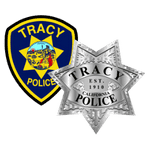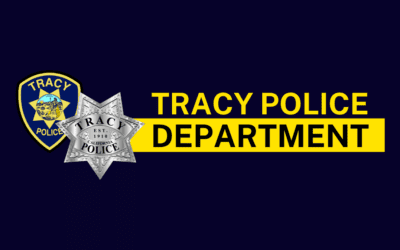Protecting Your Online Privacy and Security
With the increasing popularity of online shopping, social media, and other digital services, it is more important than ever to be aware of online safety tips. Thankfully, many resources are available to help you stay safe while browsing the web. Here are a few essential tips to get you started.
If you have questions or want more information, reach out to us through one of our social media channels, by sending us a message, or calling our Community Preservation Unit at (209)831-6550.
Keep Your Personal Information Private
One of the most important online safety tips is to keep your personal information private.
This includes your home address, phone number, email address, and credit card number. You should only share this information with websites you trust and only when necessary.
Create Strong Passwords
Another critical online safety tip is creating strong passwords for all your online accounts.
A strong password should be at least 8 characters long and include a mix of uppercase and lowercase letters, numbers, and symbols. Avoid using easily guessed words like your name or birthdate.
Additionally, it is a good practice to use different passwords across various online accounts to prevent one password from giving someone access to every account you have.
Change Your Passwords Regularly
Changing your password regularly prevents hackers from gaining access to your accounts and sensitive information. And updating passwords often ensures that only authorized users have access to restricted areas of websites or apps.
Additionally, it’s not unheard of for the databases of large companies to be hacked, resulting in access to user emails and passwords. Regularly changing your passwords helps prevent the use of old passwords that have been compromised.
A helpful tool that allows you to check for your information in known data breaches is: Have I Been Pwned
Use Two-Factor Authentication
You should enable two-factor authentication for your online accounts. Two-factor authentication is an extra layer of security that requires you to enter a code from your phone or email and your password when logging in. This makes it much harder for someone to hack into your account.
Be Careful About What You Click on Online
One of the easiest ways to get malware is by clicking on malicious links or attachments in emails or websites. If you don’t know the sender of an email or are unsure about a website, it’s best not to click on anything.
Keep Your Software Up-to-Date
Another essential online safety tip is to ensure that your computer’s software is up-to-date, including your web browser, operating system, and any plugins or extensions you use.
Outdated software often contains security vulnerabilities that hackers can exploit.
Use a Secure VPN Connection
You should use a secure VPN connection whenever you connect to the internet. A VPN encrypts all of the data sent between your computer and the VPN server, making it much more difficult for hackers to intercept and steal your data.
Avoid Public Wi-Fi Networks
Public Wi-Fi networks are often unsecured and accessible to hackers or online criminals. If you must use public Wi-Fi, avoid doing sensitive activities like online banking or shopping, as these can put your personal information at risk.
Be On the Lookout for Phishing Scams
Phishing scams are emails or websites that masquerade as being from a legitimate company to trick you into giving them personal information such as your password or credit card number. Be very careful about any emails or links you click on, even if they look legitimate at first glance.
Be Wary of Unknown Attachments
If you receive an email with an attachment from someone you don’t know, be very wary of opening it, as it could contain malware that will infect your computer. Only open attachments from people you know and trust; even then, exercise caution.
Our Latest Crime Prevention Articles
Here are the latest tips and information from the Tracy Police Department’s Blog.
Save the Date to Celebrate National Night Out with the Tracy Police Department
Celebrate the 40th Annual National Night Out with Tracy PD on August 1st!
Tracy Police Encourages Community to Drive Sober
As the summer travel season wraps up, the Tracy Police Department reminds drivers to be responsible and never drive under the influence of alcohol and/or drugs.
August is Back to School Month – Slow Down and Look for Children
As students head back to the classroom, the Tracy Police Department reminds parents and residents to follow the speed limit and be extra careful driving through school zones.

